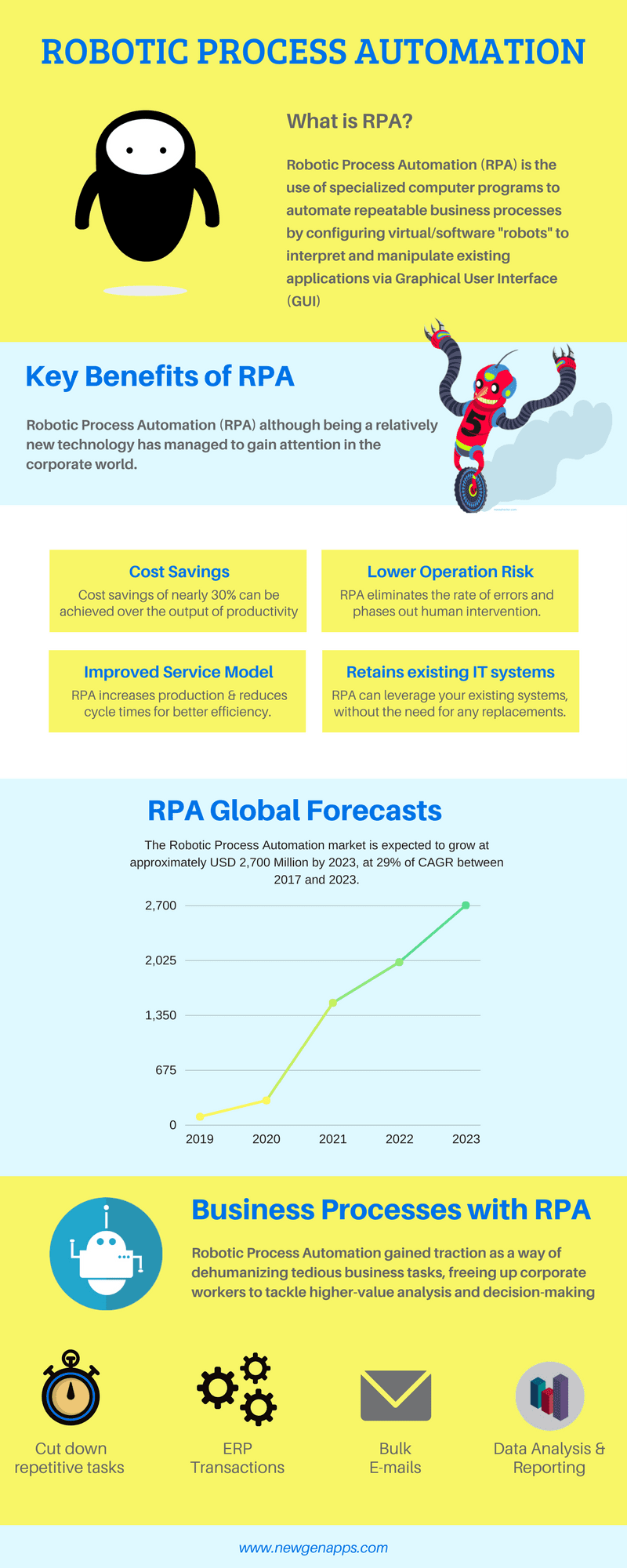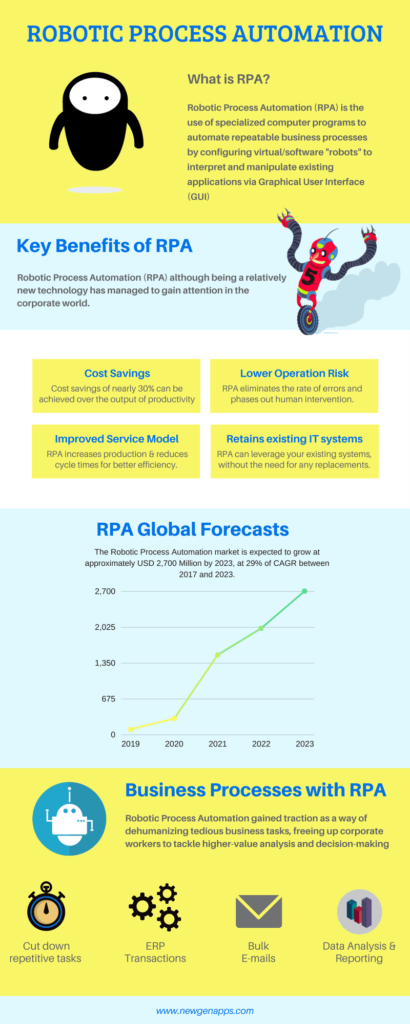2 min read
What is Robotic Process Automation? Major sectors to benefit are. . .
Anurag : Mar 6, 2017 10:00:00 PM

While the technology to chat with computers has been around for many years now, bots for businesses have become a very trendy model recently. The fact that they are here to stay has become pretty evident now that larger organizations are investing into them - right from Facebook and Kik to multiple organizations that let you build your bots and make them available immediately.
But bots are not limited to chatbots alone. Robotic Process Automation (RPA) is an emerging process automation technology - which also falls in the realm of software bots. This is a software which mimics the actions of humans interacting with a system - and helps them automate a process. RPA lets humans create bots which can then be assigned tasks. Think of RPA as an AI worker or a digital workforce, show your bot what needs to be done and then let it take care of it.
How does RPA help you and why should you use it in your enterprise?

**Note: The source is free to use but requires mention
1. Automation of routine tasks
RPA enables you to train bots to automate routine tasks and eliminate inefficiency by removing human errors. They can learn and are also easy to clone.
This ability to clone bots also makes it easy to scale up their use based on demand and helps increase the business agility
2. Lower operating costs
The best part about bots is they are cheap. Bots dramatically reduce operating costs and reduce error rates. This helps businesses increase their RoI drastically. Since these bots can be trained once and deployed/cloned multiple times, they also reduce the cost of training and implementation.
These bots also improve service, reduce turnaround time and improve compliance.
3. Intelligent bots
RPA when combined with cognitive technologies - Natural Language Processing (NLP), speech recognition, Machine Learning and Predictive Analytics helps enterprises employ bots to automate judgement-based tasks. These bots can use unstructured data and can make decisions.
How long does it take to implement an RPA?
While there is no definitive answer to this, an RPA can be implemented very fast. A proof-of-concept RPA can be up and running in as less as two weeks while a pilot can be made functional in 6 to 8 weeks depending on the scope and complexity.

This effort can vary greatly based on a company’s needs and whether the bot is for a completely repetitive work or needs any cognitive abilities as well. It is also very important for enterprises to spend considerable amount of time with their chosen technology partner to figure out if RPA is in fact right for their business requirements or whether their processes need to be changed in any way before automating the process.
What sectors can benefit from RPA?
The benefits of RPA are not limited to a single industry or vertical. Any and all enterprises can benefit from them. Some areas where RPA has helped before include
1.Banking & Financial Services
RPA can be used to automate data validations, customer management, reporting, claims validation and processing etc in BFS institutes. For instance, a large consumer bank redesigned its claims process using bots and scaling the process. As a result the bank was able to get the same amount of work done as 230 employees at 30% of the cost. Additionally the bank’s efficiency and accuracy improved greatly.
2.Telecommunications
Telecom companies can use RPA to collect data from phone systems, extract phone details, backup information among other things
3.Manufacturing
Ledger management, logistics data automation, ERP automation are some areas where manufacturing industries can benefit from RPA implementation
4.Retail & CPG
Automatic inventory updates, product information updates, sales reports and analytics and trade promotions are some realms where RPA can make a difference. Store-specific planning and product roll-outs planning can also benefit from RPA.
NewGenApps provides Robotic Process Automation (RPA) services to help our customers automate their business processes, discover new areas of automation and address their operational challenges. For more information on these services,get in touch with us today.




